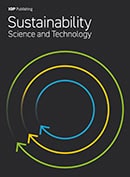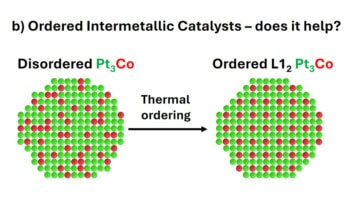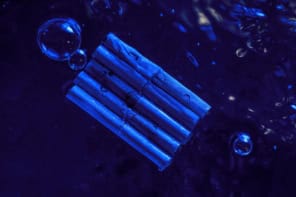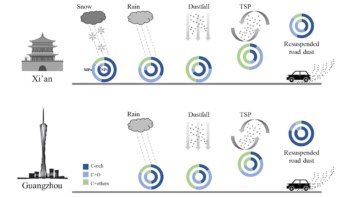Available to watch now, explore the scientific advances and future challenges in the area of PFAS (“forever chemicals”)
Want to learn more on this subject?
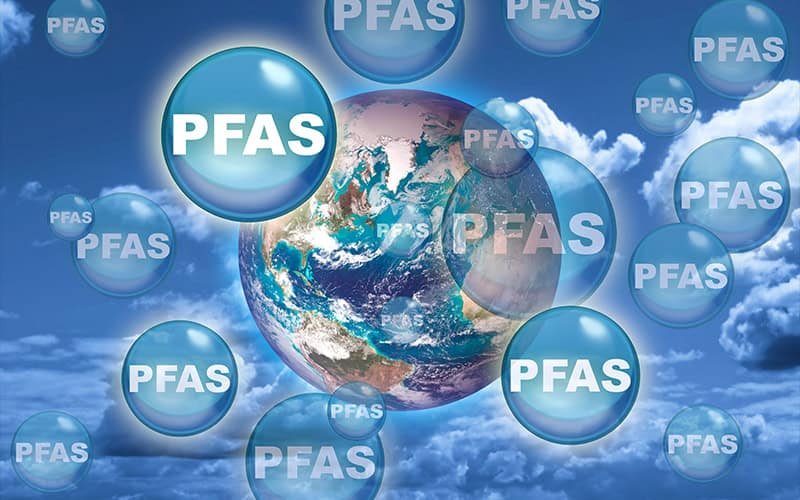
So-called “forever chemicals”, or per- and polyfluoroalkyl substances (PFAS), are widely used in consumer, commercial and industrial products, and have subsequently made their way into humans, animals, water, air and soil. Despite this ubiquity, there are still many unknowns regarding the potential human health and environmental risks that PFAS pose.
Join us for an in-depth exploration of PFAS with four leading experts who will shed light on the scientific advances and future challenges in this rapidly evolving research area.
Our panel will guide you through a discussion of PFAS classification and sources, the journey of PFAS through ecosystems, strategies for PFAS risk mitigation and remediation, and advances in the latest biotechnological innovations to address their effects.
Sponsored by Sustainability Science and Technology, a new journal from IOP Publishing that provides a platform for researchers, policymakers, and industry professionals to publish their research on current and emerging sustainability challenges and solutions.
Want to learn more on this subject?

Jonas Baltrusaitis, inaugural editor-in-chief of Sustainability Science and Technology, has co-authored more than 300 research publications on innovative materials. His work includes nutrient recovery from waste, their formulation and delivery, and renewable energy-assisted catalysis for energy carrier and commodity chemical synthesis and transformations.
Linda S Lee is a distinguished professor at Purdue University with joint appointments in the Colleges of Agriculture (COA) and Engineering, program head of the Ecological Sciences & Engineering Interdisciplinary Graduate Program and COA assistant dean of graduate education and research. She joined Purdue in 1993 with degrees in chemistry (BS), environmental engineering (MS) and soil chemistry/contaminant hydrology (PhD) from the University of Florida. Her research includes chemical fate, analytical tools, waste reuse, bioaccumulation, and contaminant remediation and management strategies with PFAS challenges driving much of her research for the last two decades. Her research is supported by a diverse funding portfolio. She has published more than 150 papers with most in top-tier environmental journals.
Clinton Williams is the research leader of Plant and Irrigation and Water Quality Research units at US Arid Land Agricultural Research Center. He has been actively engaged in environmental research focusing on water quality and quantity for more than 20 years. Clinton looks for ways to increase water supplies through the safe use of reclaimed waters. His current research is related to the environmental and human health impacts of biologically active contaminants (e.g. PFAS, pharmaceuticals, hormones and trace organics) found in reclaimed municipal wastewater and the associated impacts on soil, biota, and natural waters in contact with wastewater. His research is also looking for ways to characterize the environmental loading patterns of these compounds while finding low-cost treatment alternatives to reduce their environmental concentration using byproducts capable of removing the compounds from water supplies.
Sara Lupton has been a research chemist with the Food Animal Metabolism Research Unit at the Edward T Schafer Agricultural Research Center in Fargo, ND within the USDA-Agricultural Research Service since 2010. Sara’s background is in environmental analytical chemistry. She is the ARS lead scientist for the USDA’s Dioxin Survey and other research includes the fate of animal drugs and environmental contaminants in food animals and investigation of environmental contaminant sources (feed, water, housing, etc.) that contribute to chemical residue levels in food animals. Sara has conducted research on bioavailability, accumulation, distribution, excretion, and remediation of PFAS compounds in food animals for more than 10 years.
Jude Maul received a master’s degree in plant biochemistry from University of Kentucky and a PhD in horticulture and biogeochemistry from Cornell University in 2008. Since then he has been with the USDA-ARS as a research ecologist in the Sustainable Agriculture System Laboratory. Jude’s research focuses on molecular ecology at the plant/soil/water interface in the context of plant health, nutrient acquisition and productivity. Taking a systems approach to agroecosystem research, Jude leads the USDA-ARS-LTAR Soils Working group which is creating an national soils data repository which coincides with his research results contributing to national soil health management recommendations.
Sustainability Science and Technology is an interdisciplinary, open access journal dedicated to advances in science, technology, and engineering that can contribute to a more sustainable planet. It focuses on breakthroughs in all science and engineering disciplines that address one or more of the three sustainability pillars: environmental, social and/or economic.
Editor-in-chief: Jonas Baltrusaitis, Lehigh University, USA
